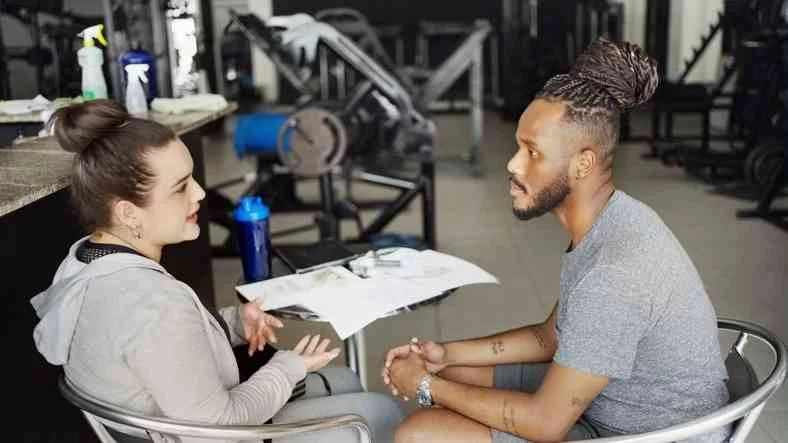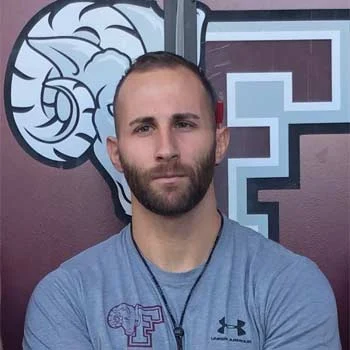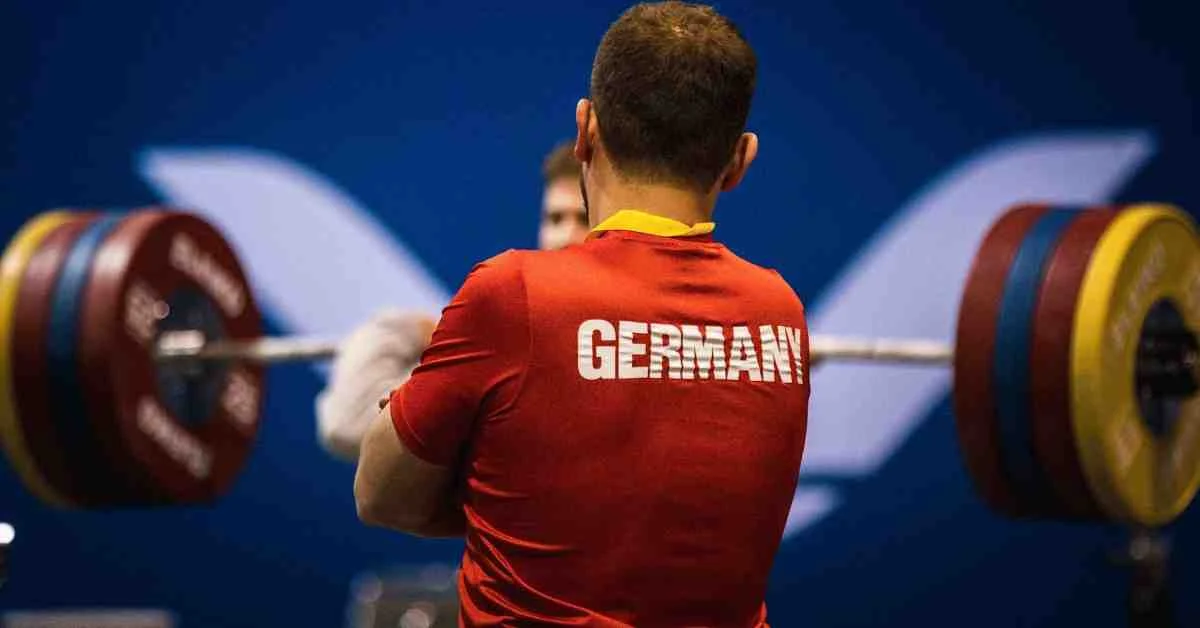Introduction
Collegiate Strength and Conditioning is a rapidly growing field. Every new semester brings a flock of aspiring, young coaches looking to gain more experience in order to develop into professional strength and conditioning coaches. More and more, colleges are adding Exercise Science programs and doing a great job of laying out the steps to get hired in this field. Typically, these programs require 50 to 400 hour internships. They include professors who make connections with other colleges or gyms to create a pipeline of internship opportunities. These students are eager to volunteer their best effort and time in order to get hands-on experience!
There is a good chance that your college weight room already has a structured internship program, falling at varying points of the organization and development spectrum. On one end, you may just take on interns because you like extra bodies on the floor or hate setting up and breaking down lift sessions. Even better, you might come up with education and assignments on the spot in a random fashion in return for hard work on the floor. On the completely other end, you might take the opportunity to develop a coaching tree of solid future assistant and head strength and conditioning coaches. This can include weekly assignments, a full syllabus, coaching goals, a written coaching progression, GA/job placement, and more.
You might also be in the “good help is hard to come by” mindset. In this case, there are some small and easy changes to make your program more marketable. If you provide a useful and educational experience, people will apply. Social media is a big part of this, as it allows more people to see your program culture.
Regardless of your position, this article’s purpose is to improve your internship program (or possibly be the spark to create one) by 1% in order to create a mutually beneficial relationship and better the field overall. It may also entice you to put more effort into your volunteers. This article might solve the age-old question of: is it better to have no help, quality help, or a large quantity of helpers? Next, it would be beneficial for young interns to read this article in order to know what to look for as they search for internship programs that actually take the time to develop great people and coaches. Finally, the word “effective” is included in the title for a reason. These tips will hopefully create an internship program that culminates with your interns getting jobs, GAs, and overall better positions!
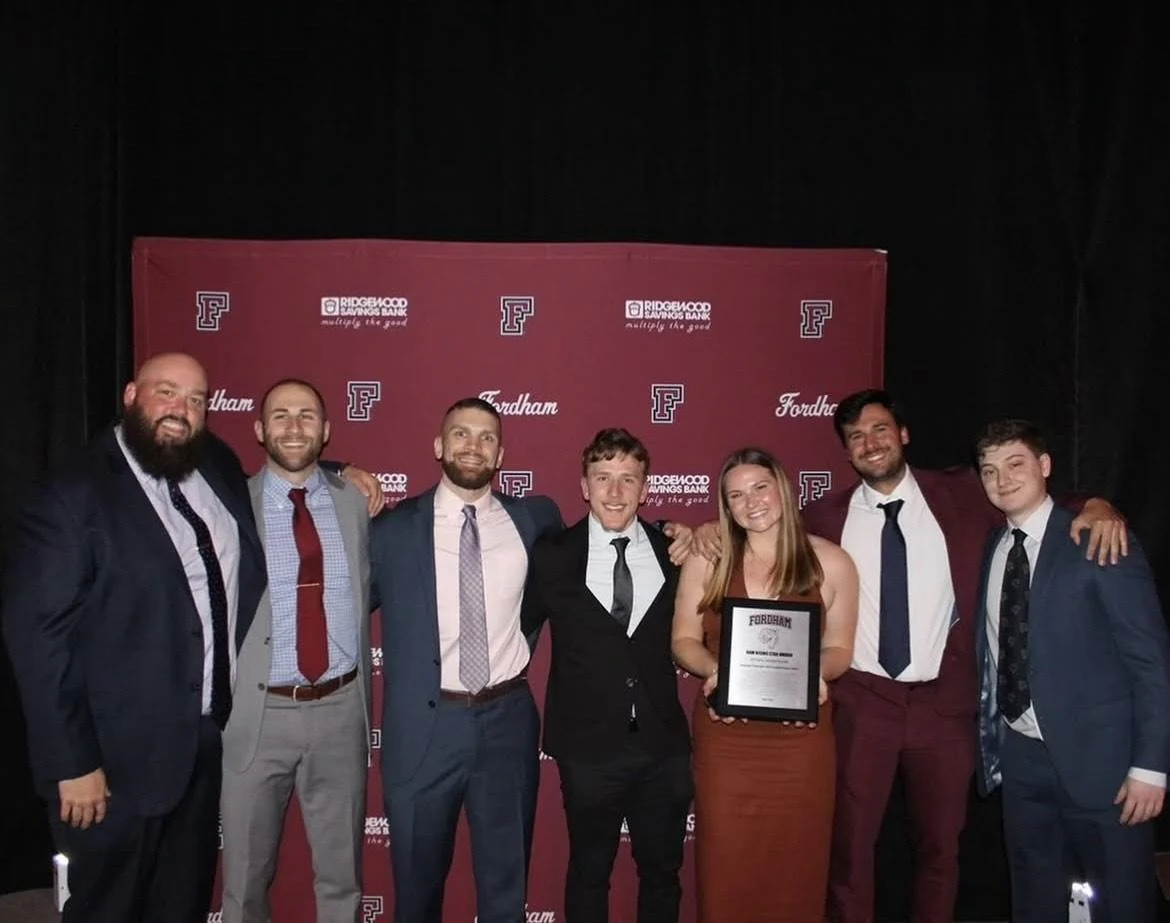
Image: 2024 Athletics Award Ceremony
Tips for How to Create a Highly Effective Internship
Tip #1: Get Started
You will not get quality interns if you don’t try. They are not going to seek you out for no reason. Reaching out to local colleges, high schools and training facilities is a good place to start. Research great Exercise Science programs in your area and create a connection with those universities. Provide a flyer or email mid-way through every semester to start the application process early. You can also go visit schools and present on what your internship program can provide.
Do not expect the best program at first. You will have to learn and adapt on the fly and you will make mistakes. Once you are rolling, previous interns should result in future ones. Soon your program will be a revolving door of quality interns each semester!
Tip #2: Have a Hiring Process
Developing an intense multi-stage application process will lead to a direct improvement in your quality of volunteers. It is important to only bring on people who fit your mold and who you can efficiently develop. Think about the values of your program and what type of person will provide value in that setting. Having multiple steps will show you who really wants it, and who will lose motivation after step 1 and not finish the application. Finally, it’s important to educate and weed out those that don’t fit your mold before they step foot on campus. This can look like:
Step 1: Video Submission
Having a video submission will allow you to review the personality of your applicants. This is less about coaching and more about demeanor. Have them send a video of them coaching someone else through a lift, a lift progression, or simply answering questions (i.e. what is your coaching “why”?). This step will give you a small glimpse into their character, experience, presence and comfort talking in front of others. If you are expecting interns that can coach from day one, you might look for individuals in this first step who have their language locked in.
Step 2: 30 Min Zoom Interview
By now, you have already refined your internship class. There will be applicants who don’t want to take the effort to make a 3-5 minute video. The next step is a zoom call with your entire staff. This step is more about coaching experience and goals. Use this step to get the formalities and logistics out of the way. Make sure to bring up the feasibility of the internship, including money and transportation. The zoom call should culminate with volunteers who understand exactly what the demands of the position are, and there should be no confusion (scheduling, teams, daily tasks, etc.) moving forward.
Step 3: Campus Trip
This is the cherry on top. You might be thinking that all these steps are tedious and over the top, but the results will be positive. The campus trip should include a training session with the staff. Does this person fit in with the staff? After all, you are all going to spend a lot of time together. Does this person enjoy training? As Tim Caron preaches often, two important aspects of this field are training and reading. Finally, does their training reflect the values and culture of your weight room?
By now you should have a good idea of their personalities and characteristics. Hopefully these fit the mold of your culture. Non-negotiables should include those who are hard-working, outgoing and love being in the gym. As Mike Boyle says, just find good people. Look for those who can talk to anyone, have a positive demeanor, and love working with people. If you start there, you can turn those good people into great coaches!
Tip #3: Let Them Fail
This tip might be the most important one. Upholding the standard in your weight room is crucial, there is no doubt about that. However, a great way to learn lasting lessons is to mess up. Have them lead a warm up, a speed drill, a full session, knowing that they might use a cue or coaching point that is not optimal if part of it. Be there to reel in things if they go wrong, but this step is huge to see how a person deals with chaos and being uncomfortable. Think back to your own learning and progression. Chances are the biggest learning experiences you came from failures. Do not rob your volunteers of this opportunity to grow.
Think back to your own learning and progression. Chances are the biggest learning experiences you came from failures, says Stephen Georgio on Internships Share on XTip #4: Let Them Coach
You can’t let them fail if you don’t give them the opportunity to. There are still too many non-coaching internships in this field. These internships include mainly cleaning, maintaining the weight room, and education. How are you supposed to develop into a coach if you never get the practical experience of coaching athletes? How are you supposed to interview and land an assistant position, or GA, if you lack the troubleshooting and nuanced experience to actually coach athletes and make good decisions on the floor?
This is not to say that there isn’t a benefit to the “chop wood, carry water” mindset and tactics, because there is. Eventually, your interns should be in charge of a weight room. When this happens, they should know how to clean bars, sweep the floor, manage technology, etc. At the end of the day, however, they need to know how to coach. They need to be able to manage people, resistant athletes, egos and more.
Slow cook the process. Start with letting them lead a warm up. This can be progressed by leading just one block, or a small group of athletes. Finally, get them in front of your biggest teams by the end of the internship.
If your education is effective, you will see a noticeable increase in their coaching presence each week. This will allow you to give them more responsibility, which in turn will lead to your room being run in a more efficient fashion. Having more coaches on the floor will allow you to facilitate better, or coach the individual athletes harder.
How are you supposed to develop into a coach if you never get the practical experience of coaching athletes?, says Stephen Georgio on Internships Share on X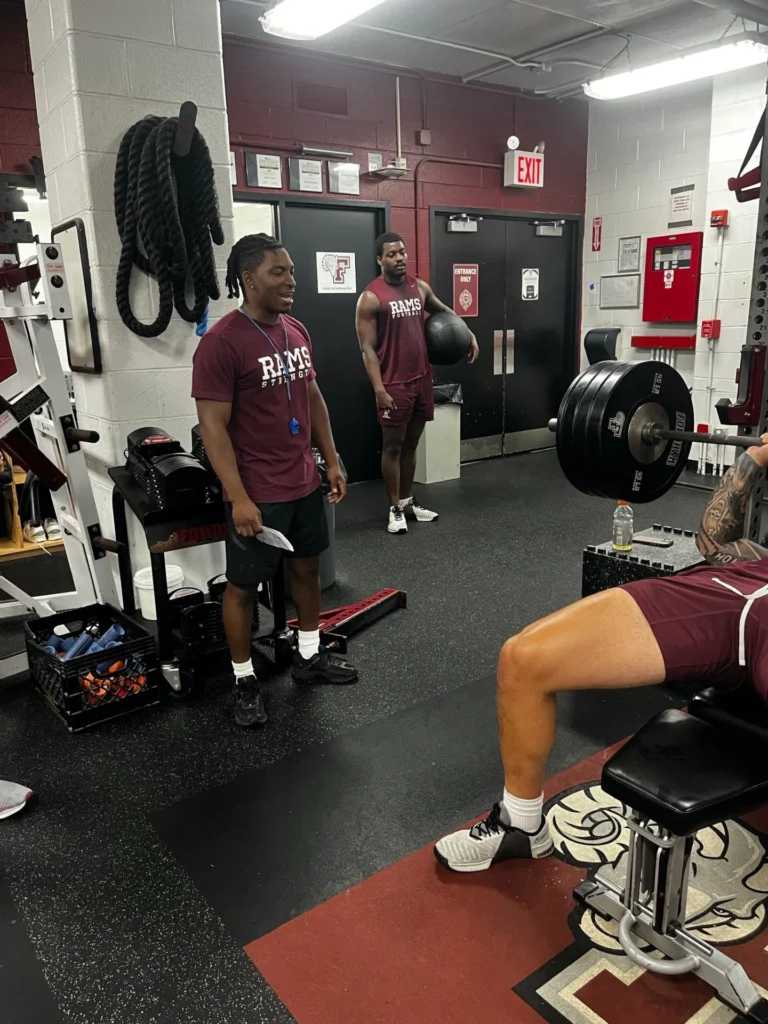
Image: Coach Javon coaching and motivating an athlete performing the bench press
Tip #5: Get to Know Them
While there may be differences in your communication to your staff vs. your interns, it is ok to let your walls down from time to time. They should be treated like they are a part of your staff and, with that, cared for like your full-time staff. With that being said, get to know them better.
One way of accomplishing this is an “About Me” presentation in the first week. Explain for them to really open up; they should talk about where they come from, where they are, and where they want to go. Also, encourage them to include fun facts that separate them. After the intern staff goes, have the full time staff do the same! Another option would be to have them teach you a skill. The internship at The Citadel, under Donnel Boucher, included this in their syllabus and it was a great opportunity to break the ice between coach and intern.
Tip #6: Have Fun With it
While there technically is a staff hierarchy and respect is a must, having fun with your interns is crucial. This can include sitting down in the staff room with everyone and enjoying non-strength and conditioning conversations, going out to lunch, going for coffee and more. We pride ourselves on the interns that can pick up the phone and call each of us without question, not those who are nervous to even text us. Another example includes an Intern Oat Bite Challenge, which was stolen from Hofstra Strength and Conditioning and their PB and J challenge. It’s ok to do things for the sake of creating a fun experience even if it doesn’t directly make them a better S&C coach.
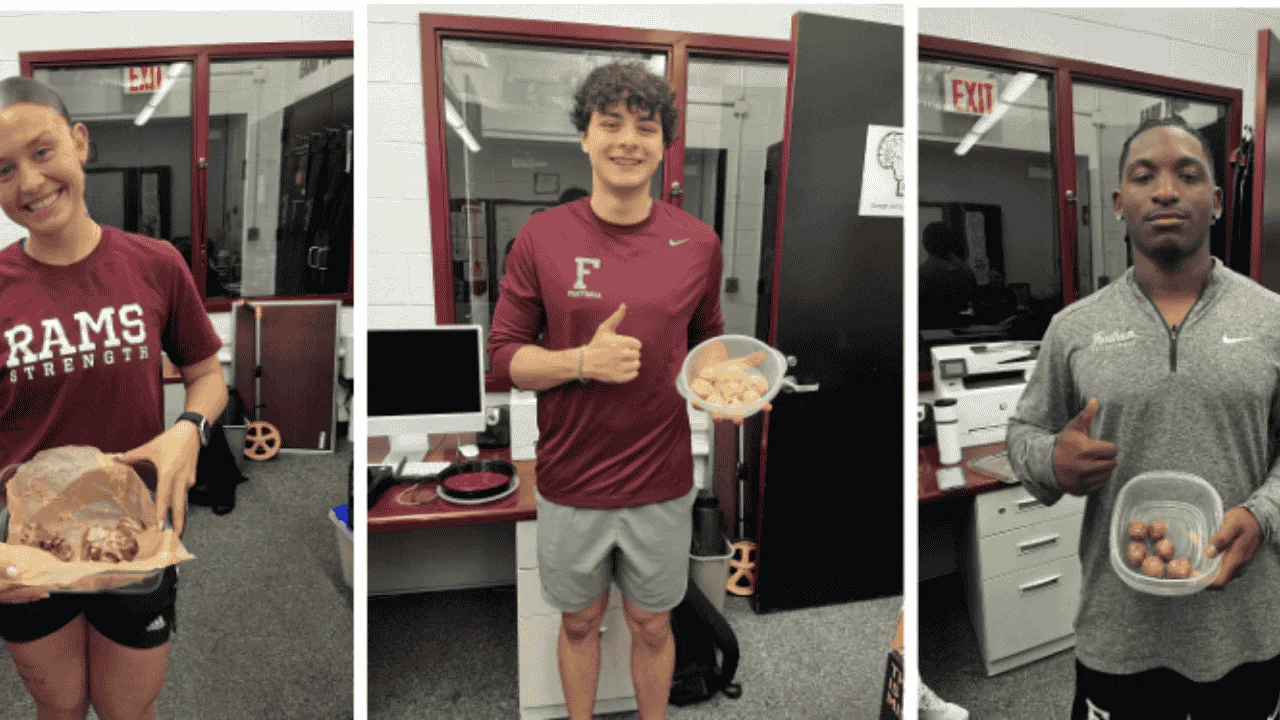
Image: Summer 2025 Energy Bite Challenge – Coach Kim Hamlin, Jake Aguilar, Javon St. John
Tip #7: Develop a Progressive Program
Think of this as Strength and Conditioning 101. At this point, they should have some coursework under their belt and a baseline knowledge of anatomy, nutrition, kinesiology and more. As we all know, however, most of this won’t translate to real life situations. Teach your volunteers how to take their knowledge and apply it to the field. Leave them with the ability to perform all aspects of the job. It can be as simple as one meeting a week to go over one topic. This can be hands-on or a lecture format. As you all know, things like proper rest ratios, perfect technique and mechanics, and perfect nutrition all sound great on paper. These same things, however, can vary depending on scheduling, different personalities, campus resources, and more.
Allow yourself to be vulnerable with your philosophy and knowledge. Simply put, be ok with giving away all your “secrets”.
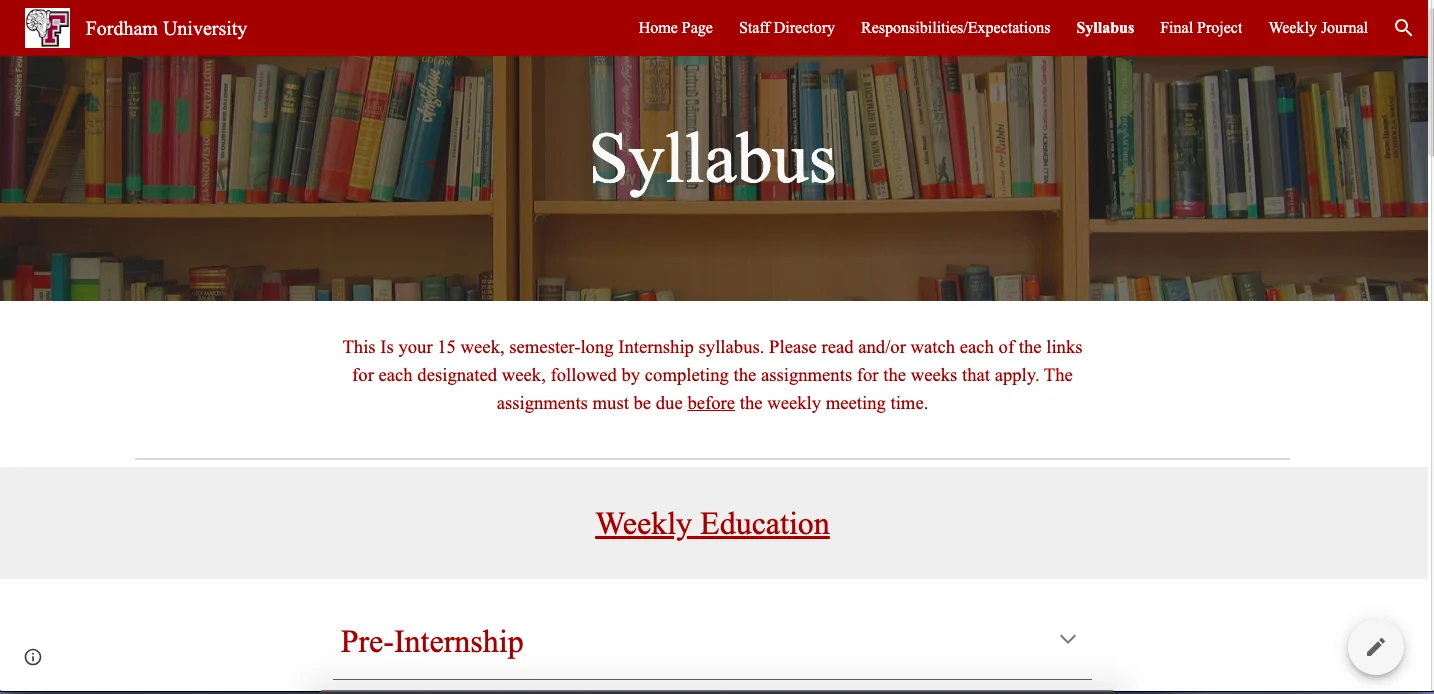
Image: Fordham Internship Syllabus Through Google Sites
Tip #8: Individualize the Program
Once you have your program developed, make sure to reconsider your intern class each semester. You may have to progress, regress, or lateralize appropriately depending on their level of knowledge and experience. This is exactly like programming. Make sure to tailor the program to them. There could be situations where you throw the entire syllabus out and start over from scratch. It is important to change the education and coaching progression to meet the demands of the specific class.
Tip #9: Be Their Mentor
There are countless articles and podcasts out there that talk about having a mentor. It is important to remember that everyone may not have one yet. Also, some people might not feel comfortable seeking one out. It could be on you to take them under your wing. They see you as the professional, and will likely be eager to listen and learn from you. Teach them about work-life balance, relationships with coaches, and things that are not found in typical internship programs. Finally, invite them to games, practices and award ceremonies!
Tip #10: Be Their Agent
Finally, help them succeed. Your interns have just put in countless months of early mornings and late nights in order to help your program succeed, pay them back by introducing them to your network, sending them job openings, and giving them tips to land that GA or job. You might have to run them through a mock job interview, review their resume, or make a post on LinkedIn about them. These are small tasks compared to the work they just put in.
Conclusion
As cliché as it sounds, you get out of this what you put in. If you take the time each semester to coach and mentor your interns, you will see immense benefits towards the latter half of each semester. I understand that this article may not be for everyone. If you are already pressed for time and think it would take away from your sessions, by all means, direct your full efforts towards your athletes. However, for those looking to start or improve their internship program, regardless of where you fall along the continuum, these tips should help drive your program in the right direction.

